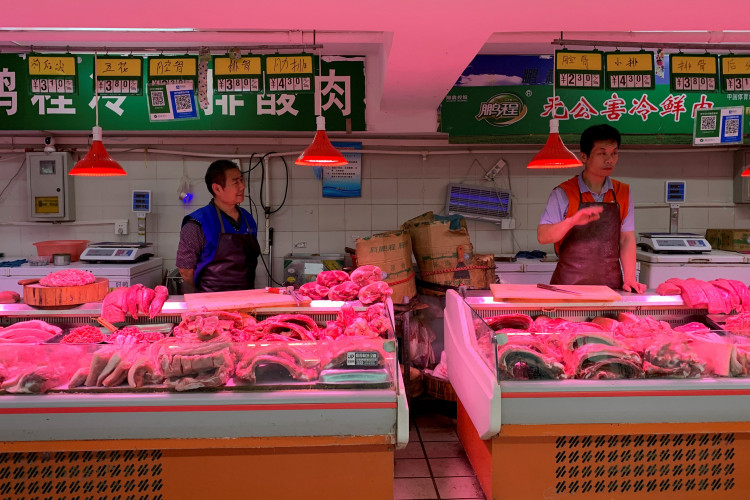China's Ministry of Commerce assured the public on Thursday that it is working on further measures to stabilize pork supplies to the country. The ministry is also working with relevant departments to ease price fluctuations.
According to China Daily, Ministry spokesman Gao Feng explained that pork prices in the country have already dropped since early November. Still, the ministry will continue cooperating with relevant groups to further stop prices from rising again.
Over the past few months, Beijing has rolled out a set of supportive measures to help stabilize the supply of pork in the country as demand surged. Among the measures taken was the increase in pork imports during the first three quarters of 2019.
For the first three quarters, a total of 1.32 million tons of pork meat were imported. Ministry data revealed that the volume accounted for a 43.6 percent increase year-on-year.
Researcher in macroeconomics with Dongxing Securities, Wang Yupeng, said in a research note that while China saw a hike in pork prices ever since African swine fever (ASF) hit the country, prices "will eventually drop due to increased supply."
Wang explained that in the past, an increase in pork prices also saw pig production improvements since swine farmers know that they need to ramp up production of pig meat to help ease the burdens of consumers.
Demand for pork hiked significantly over the past months after ASF hit hog farms across the country and resulted in the culling of millions of pigs. The crisis led to a pork shortage and pushed prices to unexpected levels.
Importing then became the norm, with data during the weekend revealing that imports during the first 10 months of 2019 doubled compared to the volume ordered last year. According to Reuters, China imported 1.5 million tons of the meat during the January to October period.
In October alone, 177,426 tons came into the Chinese market, a significant rise from September's record of 161,836 tons. The figures were only accounted for pork muscle cuts, excluding "variety meats" or non-muscle parts.
Due to China's pork shortage issue, beef imports also saw a surprising increase, given that the country's pork consumption makes up 60 percent of the total food consumption. Beef orders from overseas reached 150,829 tons, accounting for a 63.2 percent increase year-on-year.
Meanwhile, some industry experts noted that alternative meat firms can grab the opportunity in China's pork crisis and try to introduce unique plant-based delicacies native to the country.
Impossible Foods has expressed its desire to make mainland China its top one overseas market should it go for future expansion. According to CNBC, the plant-based meat giant already unveiled its "Impossible Lion's Head Dumpling in Broth" in Shanghai earlier this month.
It remains to be seen whether rival Beyond Meat will also start introducing Chinese-inspired alternative meat dishes in food fairs and expos in the country.





